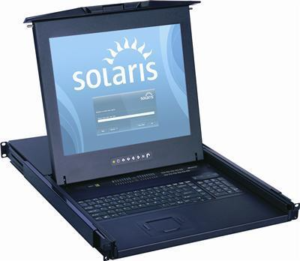
For government agencies, security is everything they rely on to protect the personal data of not only the government but common people too. Well! With the rise of cyber crimes, governments are moving towards more advanced security technologies such as Artificial Intelligence.
You might not know but more than 2,365 cybercrimes occur per day leading to various kinds of data breaches across various organizations.
AI brings a smart era of security that uses machine learning and advanced security protocols to evaluate security at various levels of your organization. AI devices like AI-driven smart desktops come with certain smart security features like predictive threat analysis that can greatly contribute to the security of government agencies.
But are these AI-powered PC secure enough for government organizations?
Let’s talk to understand better!!
1. AI-Threat Detection: Nex-Gen Security
If we talk about AI devices like AI-driven smart desktops use machine learning to analyze and stop any unrecognized authentication in real-time. Unlike traditional systems that mostly rely on digital signatures, AI PCs various techniques to deal with various digital attacks.
- The continuous system activity tracking carried out by AI produces alerts for unusual behaviour that potentially signals cyber threats.
- Moreover, Security systems use self-learning capabilities that evolve throughout time by collecting new attack patterns which help organizations maintain an advantage against cybercriminals.
- The AI-driven system detects malicious code by recognizing patterns that have not existed in the past.
Through AI implementation government agencies can protect their systems from the entire spectrum of cyber threats that exist at present.
2. Hardware-Level Security Features
The secure hardware components in AI laptops give government operations added defence against possible threats. These include:
- TPM 2.0 Trusted Platform Module helps in providing cryptographic protection that allows authentication processes and encryption operations.
- Moreover, computers that use Intel vPro and AMD PRO Security features provide integrated threat defence together with remote system administration capabilities.
- System efficiency improves through the employment of Neural Processing Units which handle security-related operations.
These advanced hardware-based security measures make systems stronger against the threats of cyber espionage together with malware attacks and firmware vulnerabilities.
3. AI-Driven Data Protection
You might not know but worldwide more than 402.74 million terabytes of data is produced every day.
To protect this data government agencies must choose strong encryption technology for complete data confidentiality. AI-powered laptops help in:
- The system automatically generates keys and performs key renewals through end-to-end AI encryption methods to protect data.
- Moreover, AI-powered systems utilize a self-healing function that monitors compromised system elements and then isolates them away from the rest of the hardware base to protect against data breaches.
4. Zero-Trust Security Architecture
System designers implement Zero-Trust Security Frameworks in their AI laptops to verify each attempted access with authentication methods.
Key components include:
- The MFA security method depends on multi-factor authentication combining biometric data with smart cards and temporary passwords for user identity authentication.
- Moreover, scheduled access control through artificial intelligence power enables authorized personnel to access classified information.
The combination of AI-based identity checks together with role-specific access protocols found in AI laptops stops unapproved personnel from accessing government systems.
5. AI-Powered Secure Communication Channels
Organizations under government control need absolute protection for their conversations and data transfers through highly secure networking frameworks.
AI laptops facilitate:
- The encryption system extends from sender to recipient and ensures all messages stay protected against unauthorized interception.
- The AI-empowered network traffic monitoring system scans for dangerous operations to stop cyber crimes before they occur.
- Quantum-Resistant Cryptographic Protocols – Ensures long-term security against advanced decryption techniques.
6. AI-Powered Automated System Updates
It remains essential to update government systems to maintain proper cybersecurity. The AI laptops apply self-executing security updating features in three ways:

- The AI system continuously detects security vulnerabilities in real-time to automatically apply necessary updates.
- Moreover, system scanning for updates should be prioritized because it maintains all programs and software at current version levels.
- Additionally, AI models identify potential unknown threats beforehand which enables them to disable them before vulnerabilities can be exploited.
The implementation of AI-based update systems protects government systems from developing cyber threats. AI laptops utilize machine learning algorithms to spot attack patterns which allows them to apply security patches before cyber attacks occur.
AI-driven update systems run autonomously to protect security protocols by minimizing human errors during operations.
A proactive approach to security through this method protects government laptops from modern cyber threats.
Conclusion
So, the answer is YES! AI laptops are completely safe and secure for performing various government operations. In fact, many government organizations have already started using AI-powered laptops in their work.
However, there are still some considerations as AI is not 100% adopted but with the pace at which AI is advancing, government organizations will widely adopt AI and its applications for enhancing security standards.






